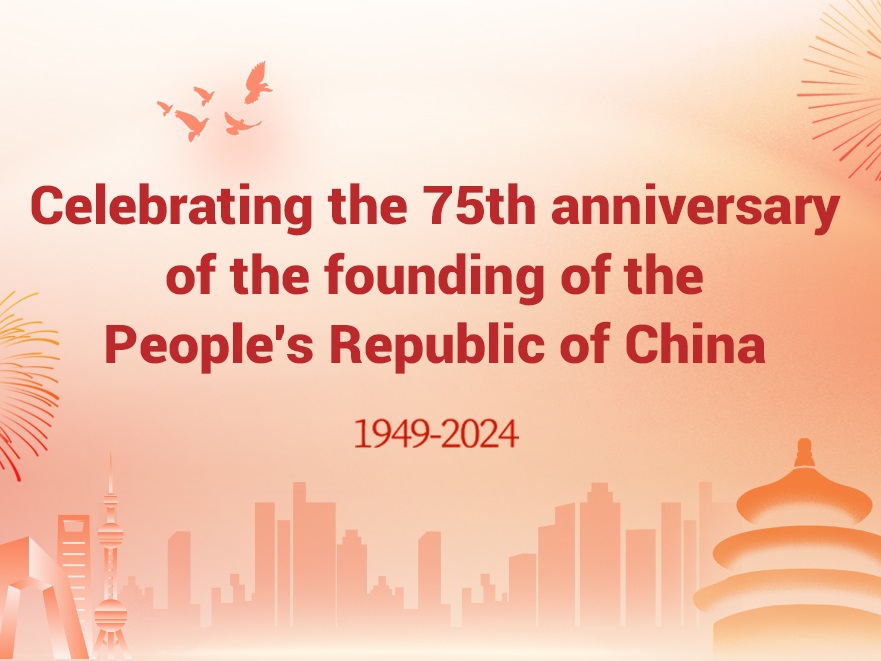CAFTA 3.0 strengthens China-ASEAN economic ties
The early conclusion of negotiations for version 3.0 of the China-ASEAN Free Trade Area (CAFTA) will offer both China and member states of the Association of Southeast Asian Nations expanded market access for products and services in each other's markets, said scholars and business executives on Wednesday.
With both sides committed to expeditiously concluding the talks of this upgraded free trade deal, they said that CAFTA 3.0 marks a deepening of economic ties between China and ASEAN, focusing not only on goods trade, but also on sectors like digital technology, green growth and modern services.
Implemented in 2010, CAFTA has significantly reduced and eliminated tariffs on a wide range of goods traded between China and ASEAN countries. The upgrade negotiations for CAFTA 3.0 were launched in November 2022, according to information released by the Ministry of Commerce.
From Aug 30 to Sept 3, 2024, the ninth round of negotiations of CAFTA 3.0 was held in Bangkok, Thailand, with both sides accelerating the negotiation process and making positive progress.
In addition to spurring economic growth and improving regional connectivity in the Asia-Pacific region, this upgraded agreement will diversify China-ASEAN business ties, reduce reliance on any single trade partner and increase resilience on global supply chains, said Lin Meng, director of the Modern Supply Chain Research Institute at Beijing-based Chinese Academy of International Trade and Economic Cooperation.
Zhang Jinhua, a researcher specializing in regional economic cooperation at Beijing-based Chinese Academy of Social Sciences, said that the upgraded agreement will involve cooperation in technology and education, helping ASEAN nations improve their industrial capacities, develop their digital economies and foster innovation.
In 2023, nearly 80 percent of China's outbound direct investment flowed into Asia, a 13.9 percent increase compared to the previous year. Among this, Chinese companies' investment in ASEAN reached $25.12 billion, an increase of 34.7 percent on a yearly basis, according to the Ministry of Commerce.
Ng Chee Keong, vice-president of North-East, Central and Southeast Asia of CrimsonLogic Pte Ltd, a Singapore-based digital trade solutions provider, said as Chinese companies accelerate their expansion into overseas markets, and the ASEAN region, with its proximity, cultural similarities and complementary resources, has naturally become a new hotspot for Chinese businesses' global strategies.
Chinese companies are showcasing their strong capabilities to Southeast Asia in multiple dimensions, including technology and product innovation, as well as brand building, said Ng, who is also the company's general manager for China.
"Their global expansion not only accelerates regional economic integration but also injects new vitality and hope into global economic cooperation," he added.
BEST Inc, a logistics services provider based in Hangzhou, Zhejiang province, launched its cross-border supply chain services and comprehensive SaaS (software as a service) solutions in Indonesia on Tuesday, marking another significant investment in Southeast Asia, following its expansions into Thailand, Vietnam, Malaysia, Singapore and the Philippines.
"In Southeast Asia, we have rapidly established our network primarily through franchising with the support of direct sales to balance service quality and costs," said Wang Xiaoqing, the group's vice-president and general manager of BEST International.
A "substantial upgrade" of the CAFTA may be announced during an upcoming summit in Laos, said ASEAN's Secretary-General Kao Kim Hourn on Wednesday.
Noting that China and the members of the Association of Southeast Asian Nations have been working actively to accelerate the negotiations for the CAFTA 3.0, Kao said the announcement is likely to be made in October during the ASEAN-China Summit.
"This is going to be a very substantial upgrade of the FTA because we want to see that this FTA will become more relevant for the business," Kao told a group of reporters on the sidelines of the 21st China-ASEAN Expo in Nanning, South China's Guangxi Zhuang autonomous region.


